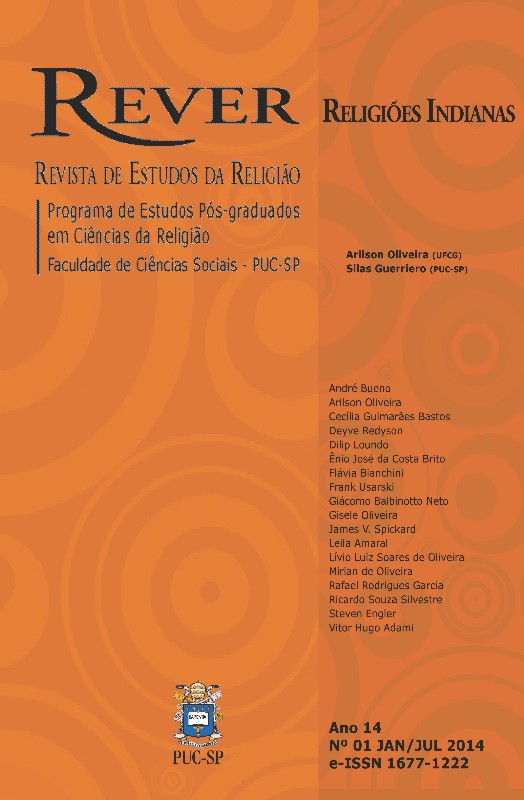O Sacrifício na Bhagavad-gītā como via de libertação: da incessante roda posta a girar à canção de roda fora do mundo
Palavras-chave:
Bhagavad-gītā, Índia, literatura sânscrita, sacrifício, ritualResumo
Neste artigo, analisamos o conceito de yajña (sacrifício) em relação a karman (ação), considerando a transição entre uma ênfase social e coletiva na performance dos sacrifícios solenes (Śrauta) na tradição da Índia antiga e a ênfase na prática e consciência individuais na filosofia da Bhagavad-gītā, conforme os termos do Vaiṣṇavismo de Caitanya. Na Bhagavad-gītā, yajña é descrito de forma abrangente, em oposição às estritas regras e tabus da tradição ritual indiana, sendo relacionado a diferentes estágios de conhecimento e desapego que culminariam, por fim, em mokṣa (liberação), uma vez que yajña, em relação à Bhakti, tem como objetivo preliminar isentar o indivíduo do ônus da ação – um dos temas centrais da Gītā –, que mantêm a entidade viva no ciclo da transmigração da alma (saṃsāra).
Métricas
Downloads
Publicado
Como Citar
Edição
Seção
Licença

Este trabalho está licenciado sob uma licença Creative Commons Attribution-NonCommercial 4.0 International License.
Autores que publicam nesta revista concordam com os seguintes termos:
- Autores mantém os direitos autorais e concedem à revista o direito de primeira publicação, com o trabalho simultaneamente licenciado sob a Licença Attribution-NonCommercial 4.0 International, que permite o compartilhamento do trabalho com reconhecimento da autoria e publicação inicial nesta revista.
- Autores têm autorização para assumir contratos adicionais separadamente, para distribuição não exclusiva da versão do trabalho publicada nesta revista (ex.: publicar em repositório institucional ou como capítulo de livro), com reconhecimento de autoria e publicação inicial nesta revista.


